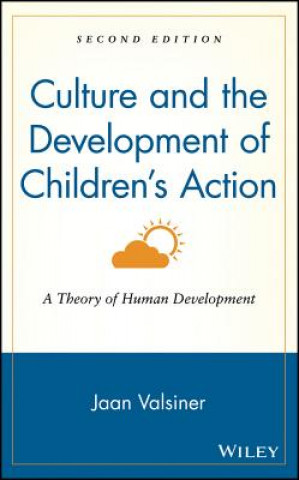
Kód: 04887757
Culture and the Development of Children's Action: A Theory of Human Development 2e
Autor Jaan Valsiner
In this deeply probing, intellectually challenging work, Dr. Jaan Valsiner lays the groundwork for a dynamic new cultural-historical approach to developmental psychology. He begins by deconstructing traditional developmental theor ... celý popis
- Jazyk:
 Angličtina
Angličtina - Väzba: Pevná
- Počet strán: 384
Nakladateľ: John Wiley & Sons Inc, 1997
- Viac informácií o knihe

Mohlo by sa vám tiež páčiť
-

Detection of Low-Level Optical Signals
277.15 € -

Heinemann Active Maths - Second Level - Exploring Number - Pupil Book 3 - Algebraic Thinking
21.59 € -

Smike Libretto
24.15 € -

No Way Home
45.04 € -

Colonial America - A History to 1763 4e
90.91 € -

Character of Curriculum Studies
53.74 € -4 % -

History of Continental Philosophy
1045.87 €
Darčekový poukaz: Radosť zaručená
- Darujte poukaz v ľubovoľnej hodnote, a my sa postaráme o zvyšok.
- Poukaz sa vzťahuje na všetky produkty v našej ponuke.
- Elektronický poukaz si vytlačíte z e-mailu a môžete ho ihneď darovať.
- Platnosť poukazu je 12 mesiacov od dátumu vystavenia.
Viac informácií o knihe Culture and the Development of Children's Action: A Theory of Human Development 2e
Nákupom získate 333 bodov
 Anotácia knihy
Anotácia knihy
In this deeply probing, intellectually challenging work, Dr. Jaan Valsiner lays the groundwork for a dynamic new cultural-historical approach to developmental psychology. He begins by deconstructing traditional developmental theory, exposing the conceptual confusion and epistemological blind spots that he believes continue to undermine the scientific validity of its methodologies. He describes the ways in which embedded cultural biases shape interventional goals and influence both the direction research takes and the ways in which research data are interpreted. And he suggests ways in which researchers and clinicians can become more aware of and transcend those biases. Dr. Valsiner then develops a hierarchical, systemic model that portrays development as an open-ended, dialectical process. Central to Valsiner's approach is the premise that, since each child is unique--as are his or her life conditions--deviations in function or the rate of development from a prescribed norm are just as likely to be constructive adaptations to changing environmental pressures as symptoms of psychological disorder. Drawing upon sources as varied as linguistic philosophy, structural anthropology, thermodynamics, and systems theory, as well as the work of many of the leading figures in twentieth-century developmental theory, Valsiner argues convincingly for an approach to developmental psychology mature enough to recognize the difference between healthy variability and dysfunction. In later chapters the focus shifts from development in the abstract to the everyday challenges encountered by the developing child. Case histories illustrate the subtle interplay of cultural, physiological, and psychological factors in shaping childhood behavior. Called an "intellectual tour de force" by the Bulletin of the Menninger Clinic, Culture and the Development of Children's Action is important reading for developmental psychologists, child psychologists, and all child clinicians. "Of course, no science progresses in a linear fashion. It moves interdependently with the society in which it is embedded, making use of the narrative forms in describing itself to its insiders and outsiders. The rhetoric of scientists about their science is therefore necessarily inconsistent. Sciences are both social institutions within a society and social organizations that attempt to build universal knowledge. It is a complicated task for psychology to be both knowledge-constructing and self-reflexive at the same time. Nevertheless, it is the latter kind of reflexivity that guides the actual construction of knowledge." -- Jaan Valsiner "[This book] is a fascinating and important work that challenges much of contemporary developmental psychology. The Second Edition has changed in a number of respects, and much new material has been added, but at root, Valsiner grapples with the question 'how shall we understand development?' He continues to struggle also with what he describes rather vividly as the 'epistemological windmills of psychology.' His challenge is summed up succinctly in two lines from a poem by T. S. Eliot: Where is the wisdom we have lost in knowledge? Where is the knowledge we have lost in information?" -- -- from the Foreword by Kevin Connolly
 Parametre knihy
Parametre knihy
Zaradenie knihy Knihy po anglicky Society & social sciences Psychology Child & developmental psychology
134.73 €
- Celý názov: Culture and the Development of Children's Action: A Theory of Human Development 2e
- Autor: Jaan Valsiner
- Jazyk:
 Angličtina
Angličtina - Väzba: Pevná
- Počet strán: 384
- EAN: 9780471135906
- ISBN: 0471135909
- ID: 04887757
- Nakladateľ: John Wiley & Sons Inc
- Hmotnosť: 740 g
- Rozmery: 235 × 164 × 28 mm
- Dátum vydania: 02. July 1997
Obľúbené z iného súdka
-

Playing and Reality
27.22 € -4 % -

Adaptation to Life
42.69 € -

Understanding Human Nature
14.73 € -

Hidden Treasure
53.33 € -

Life Cycle Completed
13.71 € -15 % -

Conscious Parent
18.73 € -23 % -

Bright Kids Who Can't Keep Up
17.80 € -

Conscious Femininity
17.70 € -23 % -

How Children Learn
13.30 € -23 % -

Moral Judgment of the Child
24.46 € -13 % -

End of Average
12.28 € -23 % -

Attachment
38.90 € -

Group Filial Therapy
50.98 € -

Healthy Pleasures
23.74 € -
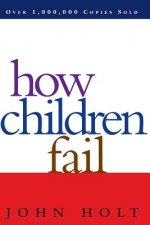
How Children Fail
17.80 € -3 % -

Highly Sensitive Child
16.58 € -23 % -
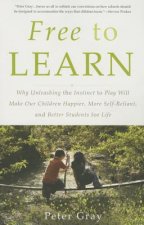
Free to Learn
20.36 € -4 % -

Range
9.72 € -19 % -

Integrating Play Therapy and Emdr with Children
18.83 € -

Range
26.10 € -16 % -

Philosophical Baby
16.58 € -23 % -

Interpersonal World of the Infant
35.62 € -

Early Start Denver Model for Young Children with Autism
73.40 € -
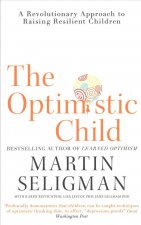
Optimistic Child
18.73 € -23 % -

Child Psychology and Psychiatry - Frameworks for Clinical Training and Practice 3e
80.06 € -
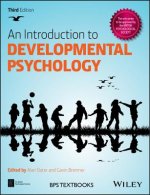
Introduction to Developmental Psychology 3e
74.12 € -3 % -

Tree of Knowledge
29.17 € -19 % -

Attention, Balance and Coordination - The A.B.C.of Learning Success 2e
84.25 € -

Development of Children
84.66 € -

Rutter's Child and Adolescent Psychiatry 6e
155.11 € -

Maturity
14.63 € -20 % -
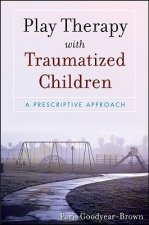
Play Therapy with Traumatized Children - A Prescriptive Approach
60.71 € -1 % -

Handbook of Prenatal and Perinatal Psychology
377.18 € -

Disappearance of Childhood
16.06 € -8 % -

Uses of Enchantment
12.28 € -23 % -

Truth Will Set You Free
14.84 € -18 % -

How Children Succeed
12.28 € -23 % -

EMDR Therapy and Adjunct Approaches with Children
89.58 € -

Identity and the Life Cycle
15.45 € -10 % -

Developmental Neuropsychology
62.45 € -

Integrative Approach to Treating Babies and Children
41.76 € -

Self Efficacy
136.06 € -

Making and Breaking of Affectional Bonds
20.47 € -5 % -

Child
52.62 € -

Treating Attachment Disorders
51.39 € -

Brain Child
17.70 € -23 % -

Child Psychology: A Very Short Introduction
11.35 € -13 % -

Bilingual
29.99 € -5 % -
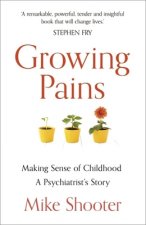
Growing Pains
12.48 € -14 %
Osobný odber Bratislava a 2642 dalších
Copyright ©2008-24 najlacnejsie-knihy.sk Všetky práva vyhradenéSúkromieCookies



 19 miliónov titulov
19 miliónov titulov Vrátenie do mesiaca
Vrátenie do mesiaca 02/210 210 99 (8-15.30h)
02/210 210 99 (8-15.30h)